detail profile karita mattila
Peran Yang Di Mainkan Karita Mattila
 Jeanine an earnest theatre director has...
Jeanine an earnest theatre director has...Seven Veils 2025
Jeanine, an earnest theatre director, has been given the task of remounting her former mentor’s most famous work, the opera Salome. Haunted by dark and disturbing memories from her past, she allows her repressed trauma to color the present as she re-enters the opera world after so many years away.
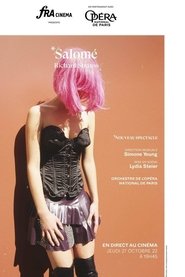 Salome princess of Judea the daughterinlaw...
Salome princess of Judea the daughterinlaw...Salomé (Opéra de Paris) 2022
Salome, princess of Judea, the daughter‑in‑law of King Herod, finds life in her father‑in‑law’s palace dreary. Her curiosity is roused when she hears the voice of Jochanaan, a prophet held prisoner by Herod who is afraid of him. Obsessed by this enigmatic and virtuous man, Salome is ready to do anything to possess him, dead or alive. Drawing on Oscar Wilde’s scandalous play of the same name, in 1905 Richard Strauss produced the work that was to ensure his status as Wagner’s successor in the history of German opera. A dazzling hour and forty minutes, decadent in its very essence, which, for her debut at the Paris Opera, Lydia Steier treats as a dystopia in which amorality rules.
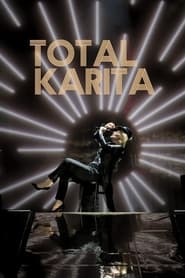 The two parts of the evening...
The two parts of the evening...Total Karita 2022
The two parts of the evening showcase two opposite extremes of emotion. Firstly, Poulenc’s powerful La voix humaine (The Human Voice) tells the touching story of an abandoned woman. The opera monologue of approximately 45 minutes is performed in melodramatic film noir style. After the interval the atmosphere changes dramatically, turning into a raucous show of musical classics and popular repertoire. Directed by Jussi Nikkilä and conducted by Dalia Stasevska, this event has been put together specifically to showcase the great artistry of Karita Mattila.
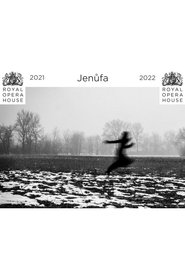 When a beautiful young woman in...
When a beautiful young woman in...Jenůfa 2021
When a beautiful young woman in rural Moravia becomes unexpectedly pregnant, she learns that love is sometimes only skin-deep. Asmik Grigorian as Jenůfa in her Covent Garden debut and Karita Mattila as the Kostelnička lead a star cast with Hungarian conductor Henrik Nánási conducting a stunning score infused with traditional folk melodies of Janáček’s native Moravia. Claus Guth’s acclaimed staging - both elegant and open while being utterly claustrophobic and oppressive - captures the great humanity at the heart of the opera.
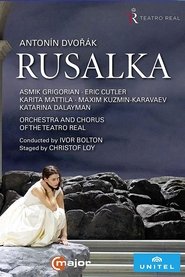 The libretto of the most well...
The libretto of the most well...Rusalka 2020
The libretto of the most well known opera by Dvořak, which premiered in Prague in 1901, is inspired by the Czech version of the Central European folktale, one we also know as Undine (1811) by Friedrich de la Motte Fouqué or The Little Mermaid (1837) by Hans Christian Andersen.
 Rufus Wainwrights original opera finds Emperor...
Rufus Wainwrights original opera finds Emperor...Hadrian 2020
Rufus Wainwright's original opera finds Emperor Hadrian devastated after his lover Antinous drowns in the Nile River. While matters of state encroach on his grief, and advisors clamour for war against a radical new threat to the Empire, Hadrian slips out of time to re-encounter the vision and reality of Antinous—and learn the truth about what happened on the Nile.
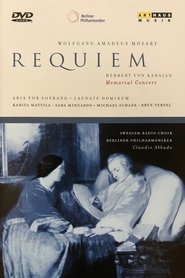 Claudio Abbado leads the Berlin Philharmonic...
Claudio Abbado leads the Berlin Philharmonic...Mozart: Requiem: Karajan Memorial Concert 2015
Claudio Abbado leads the Berlin Philharmonic and the Swedish Radio Choir in a performance of Mozart's Requiem at the Salzburg Cathedral to commemorate the 10th anniversary of renowned Austrian conductor Herbert Von Karajan's death. Featuring soloists Rachel Harnisch, Karita Mattila, Sara Mingardo, Bryn Terfel and Michael Schade, this solemn evening is a fitting tribute to one of the 20th century's most influential musical personalities. Live from Salzburg Cathedral on July 16th, 1999.
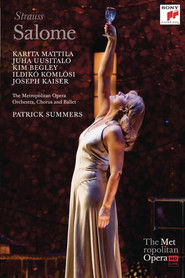 It is no wonder that Met...
It is no wonder that Met...Strauss: Salome 2008
It is no wonder that Met audiences have gone wild over Karita Mattila’s sizzling Salome. Indisputably one of the greatest Salomes of our time, Mattila utterly incarnates Oscar Wilde’s petulant, willful, and lust-driven heroine. With Strauss’s groundbreaking music magnifying the degenerate atmosphere and building the erotic tension, this is one opera that is as shocking today as it was at its premiere in 1905.
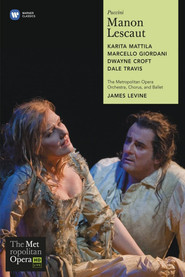 One of todays most compelling singing...
One of todays most compelling singing...Manon Lescaut – The Met 2008
One of today’s most compelling singing actresses, Karita Mattila takes on the irresistible role of Manon Lescaut, the headstrong young woman torn between a life of luxury and the call of her true love: the Chevalier des Grieux, played by Marcello Giordani. The young Puccini lavished some of his most sensual music on this early hit, conducted here by James Levine.
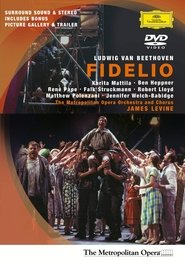 Two years prior to the opening...
Two years prior to the opening...Ludwig van Beethoven: Fidelio 2003
Two years prior to the opening scene, the nobleman Florestan has exposed or attempted to expose certain crimes of the nobleman Pizarro. In revenge, Pizarro has secretly imprisoned Florestan in the prison over which Pizarro is governor. The jailer of the prison, Rocco, has a daughter, Marzelline, and a servant (or assistant), Jaquino. Florestan’s wife, Leonore, came to Rocco’s door dressed as a boy seeking employment, and Rocco hired her. On orders, Rocco has been giving Florestan diminishing rations until he is nearly starved to death. Place: A Spanish state prison, a few miles from Seville; Time: Late 18th century.
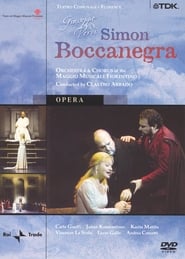 Giuseppe Verdis one prologue three act...
Giuseppe Verdis one prologue three act...Verdi: Simon Boccanegra 2002
Giuseppe Verdi's one prologue, three act opera featuring libretto by Francesco Maria Piave and Arrigo Boito is performed before a live audience at Florence's Teatro Comunale in this release featuring the music of the Orchestra and Chorus of the Maggio Musicale Fiorentino under conductor Claudio Abbado, and starring Carlo Guelfi, Julian Konstantinov, and Karita Mattila.
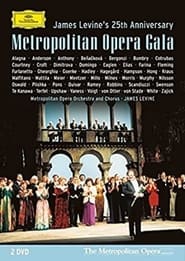 This tribute to James Levine first...
This tribute to James Levine first...Metropolitan Opera Gala James Levine's 25th Anniversary 1996
This tribute to James Levine, first shown on PBS, was only part of that glorious evening. Here we have the whole performance, up to three hours. I could not stop watching these discs. Let me say this much; Levine has done for the Met, making it the premier opera house in the world, what Karajan did with the Berlin, making it one of the finest orchestras ever. So sit back and enjoy.
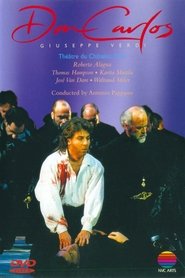 Luc Bondys 1996 production of Don Carlos...
Luc Bondys 1996 production of Don Carlos...Verdi: Don Carlos 1996
Luc Bondy's 1996 production of Don Carlos was staged, recorded and filmed at the Chatelet in Paris. These seven performances were blessed with an all-star cast, loaded with important singers either starting their careers (Roberto Alagna) or at the height of their dramatic powers (Karita Mattila, Jose Van Dam.)

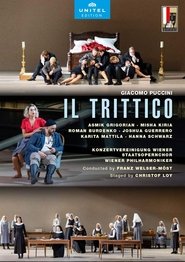
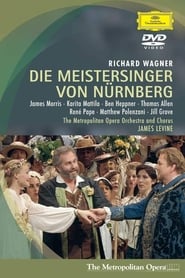 James Morris leads an allstar cast...
James Morris leads an allstar cast...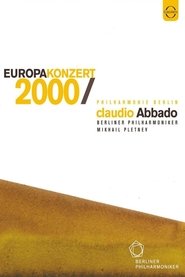 Beethoven Concerto N 2 for Piano and...
Beethoven Concerto N 2 for Piano and...